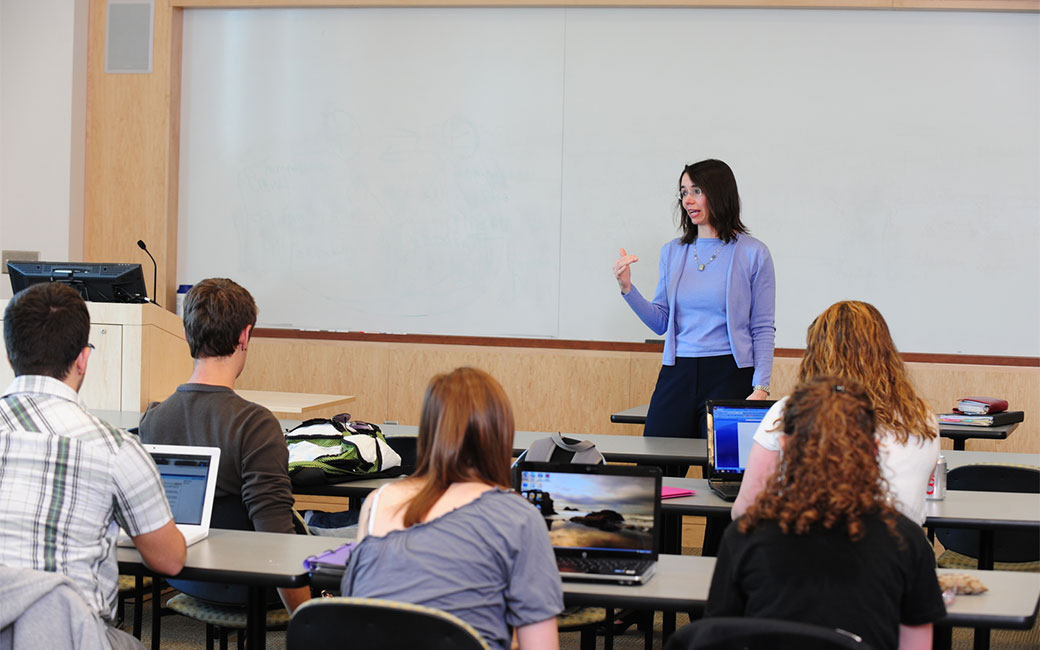About the College
Message from the Dean
Dean Chris J. Chulos offers an end-of-semester message to students in the College of Liberal Arts.
Mission Statement
The College of Liberal Arts provides a foundation for the intellectual and cultural life of the university through its contributions to a liberal arts education for all students. Emphasizing excellence in teaching and learning, the college offers challenging curricula in diverse majors, disciplines, and interdisciplinary programs. CLA strives to impart a spirit of curiosity, creativity, and critical thinking; to promote integrity and tolerance; and to encourage students and faculty to be engaged and informed citizens. CLA is committed to improving our communities, our societies and the world.
Liberal Arts Education
Study in the College of Liberal Arts develops those abilities and habits of the mind associated with a liberal education. Students learn how to examine evidence carefully, how to represent ideas fully and fairly, and how to analyze information and construct claims. They learn to express themselves clearly and creatively, to weigh complexities of argument and circumstance in reaching informed judgments, and to appreciate the rich diversity of human culture. The cultivation of such abilities prepares students for richer lives both personally and professionally and equips Liberal Arts graduates to meet the highest tests of democratic citizenship.
Learning in the College of Liberal Arts

The College of Liberal Arts limits the size of its classes whenever possible to allow greater faculty-student interaction, an emphasis on writing and constructive feedback, and responsiveness to individual students. Learning may take place in many settings and through varied forms of interaction. The College supports exploration of different teaching formats, creative uses of technology, experience beyond the classroom, and work with peers as important bases for the expansion of student learning.
CLA Faculty
CLA Faculty are active scholars who participate in professional meetings, publish articles and books, conduct seminars and/or workshops, collaborate with community organizations, and engage in research and intellectual exchange regionally, nationally, and internationally. Such work not only invigorates the classroom but also helps to create opportunities for students. More advanced students may undertake work under the guidance of, or in collaboration with faculty on campus, perhaps as part of a grant project, as an independent study, or as a senior thesis. Internships or service-learning opportunities may also reflect arenas of faculty engagement. Students may join a travel program led by a faculty member or study abroad/away because of opportunities created through faculty contacts. The College seeks to build an intellectual and civic life that encompasses students and faculty alike.
What Employers Want
Employers often list among the traits they most desire in their employees, the ability to write clearly and effectively, the ability to analyze a problem and to pursue solutions with good judgment, the ability to work with others in groups and the ability to understand and to appreciate cultural differences. Democratic government requires a citizenry that is able to engage in civil discourse, to understand and evaluate ideas, and to make choices in an environment of complexity. Individual appreciation of much that surrounds us in American and global culture flourishes through a recognition of pattern, precedent, reference and meaning. The demands of all of these spheres are addressed by an education in the liberal arts. In both its undergraduate and its graduate programs, the College of Liberal Arts seeks to convey knowledge and to sharpen the tools of thought to aid students in constructing their personal, professional and civic lives. We invite you to join us in this voyage of creation and discovery